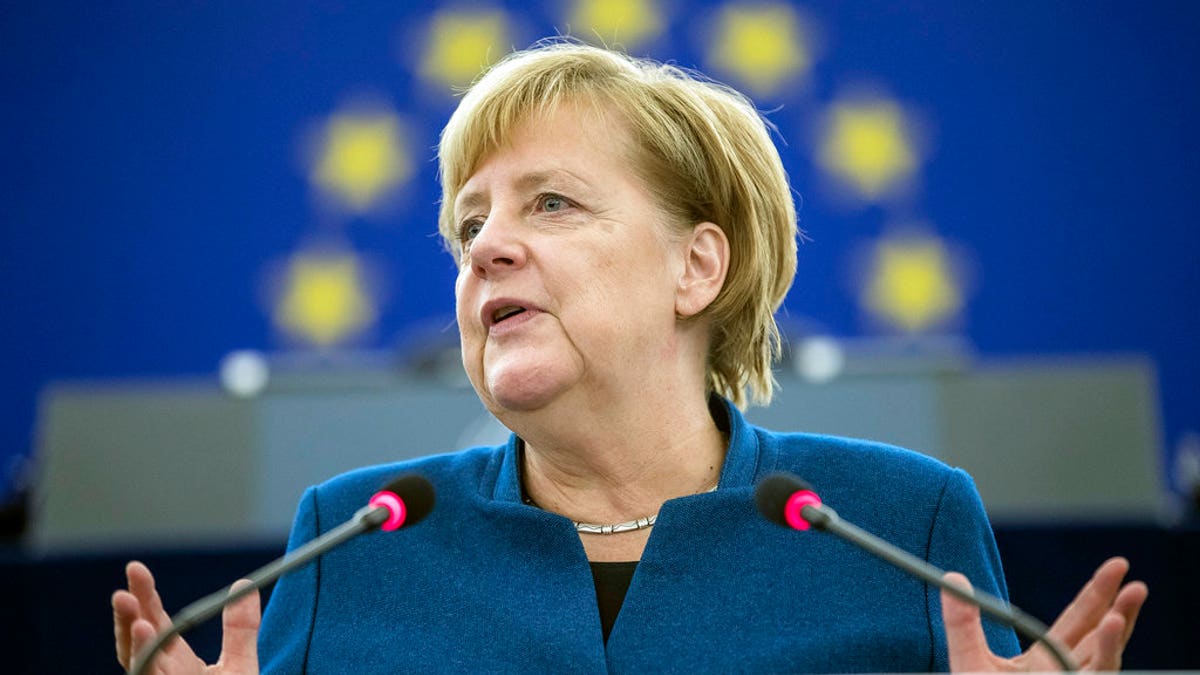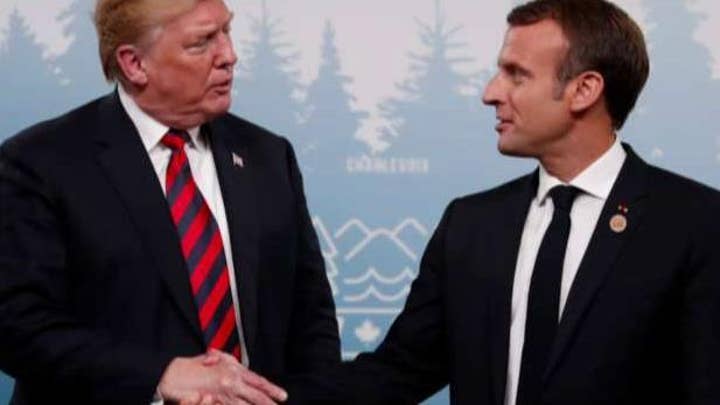
German Chancellor Angela Merkel addresses the European Parliament on Tuesday.
German Chancellor Angela Merkel on Tuesday backed French counterpart Emmanuel Macron in his call for a European army -- a move that President Trump has called “insulting” as he urged the countries to fulfill their NATO commitments instead.
Merkel told lawmakers in the E.U. Parliament in Strasbourg that “we have to work on the vision of one day creating a real European army.” She clarified the such a force would not mean the end of NATO, and also called for the creation of a European security council.
The remarks were met with a mix of boos and cheers from lawmakers, with some British representatives crying “Rubbish! Rubbish!”
Merkel made the remarks after the idea was floated by Macron last week, when he said that Europe was “the main victim of Trump’s decision to withdraw from the 1987 Intermediate-Range Nuclear Forces Treaty with Russia.
“We will not protect the Europeans unless we decide to have a true European army,” Macron said, according to The Wall Street Journal. He also grouped in the U.S. with the countries from which France needed protection.
TRUMP SLAMS MACRON FOR LOW APPROVAL RATINGS, FRENCH SURRENDER TO THE NAZIS
“We have to protect ourselves with respect to China, Russia and even the United States of America,” he said on French radio.
President Trump responded angrily to that call, on Friday calling it “very insulting” and instead calling for European countries to meet their NATO defense commitments. He doubled down on that call on Tuesday when he made reference to the French surrender to the Nazis in World War II.
“Emmanuel Macron suggests building its own army to protect Europe against the U.S., China and Russia. But it was Germany in World Wars One & Two - How did that work out for France?” he tweeted.”They were starting to learn German in Paris before the U.S. came along. Pay for NATO or not!”
Trump has often complained about the burden placed on the U.S. by NATO obligations, noting that the U.S. has an enormous military budget, part of which is spent protecting allies abroad -- including in Europe. In July, he complained, "We're protecting Germany, we're protecting France. We're protecting everybody. And yet we're paying a lot of money to protect."
NATO itself does not have a defense budget, but members commit to spending a minimum of 2 percent of their Gross Domestic Product to defense spending -- although a number of countries do not meet this commitment. For 2018, the U.S. is spending 3.5 percent of its GDP on defense spending.
Meanwhile France is spending 1.81 percent, Germany is spending 1.24 percent and only a handful of NATO countries are meeting that 2 percent commitment.
Merkel said recently that she intends to step down as chancellor in 2021.
The Associated Press contributed to this report.

